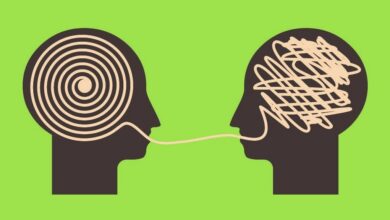What Are the the 4 Types of Mental Health Disorders?
Unveiling the 4 Primary Categories of Mental Health Disorders
Mental health is a crucial aspect of overall well-being, impacting how we think, feel, and behave. Just as physical health varies, so does mental health. Understanding the different types of mental health can help individuals, families, and communities better support and manage their mental well-being. In this article, we’ll explore the four main 4 types of mental health Disorders issues, shedding light on each category’s unique characteristics, causes, and potential treatments.
Introduction
Mental health plays a significant role in our ability to handle stress, relate to others, and make choices. It encompasses emotional, psychological, and social well-being. Just like physical health, mental health can face challenges, leading to various types of mental health disorders.
Understanding Mental Health
Mental health is not a binary concept. It exists on a spectrum, with individuals experiencing different levels of well-being at different times. It’s essential to recognize that experiencing mental health challenges is a common part of the human experience.
Common Mental Health Disorders
1. Anxiety Disorders
Anxiety disorders are characterized by persistent feelings of fear, worry, or unease. Conditions like generalized anxiety disorder, panic disorder, and social anxiety disorder fall under this category. These disorders can be disruptive and lead to avoidance behaviors.

2. Mood Disorders
Mood disorders involve persistent emotional disturbances that affect daily life. Depression, for example, is a prevalent mood disorder characterized by overwhelming sadness and loss of interest. Bipolar disorder, on the other hand, involves extreme mood swings between depression and mania.
3. Psychotic Disorders
Psychotic disorders cause individuals to lose touch with reality. Conditions like schizophrenia often involve hallucinations, delusions, and impaired thinking. These disorders can significantly impact a person’s thoughts, emotions, and behaviors.
4. Eating Disorders
Eating disorders revolve around unhealthy relationships with food and body image. Anorexia nervosa, bulimia nervosa, and binge-eating disorder are common examples. These disorders can lead to severe physical and emotional consequences.
[adinserter block=”2″]
[mashshare]




